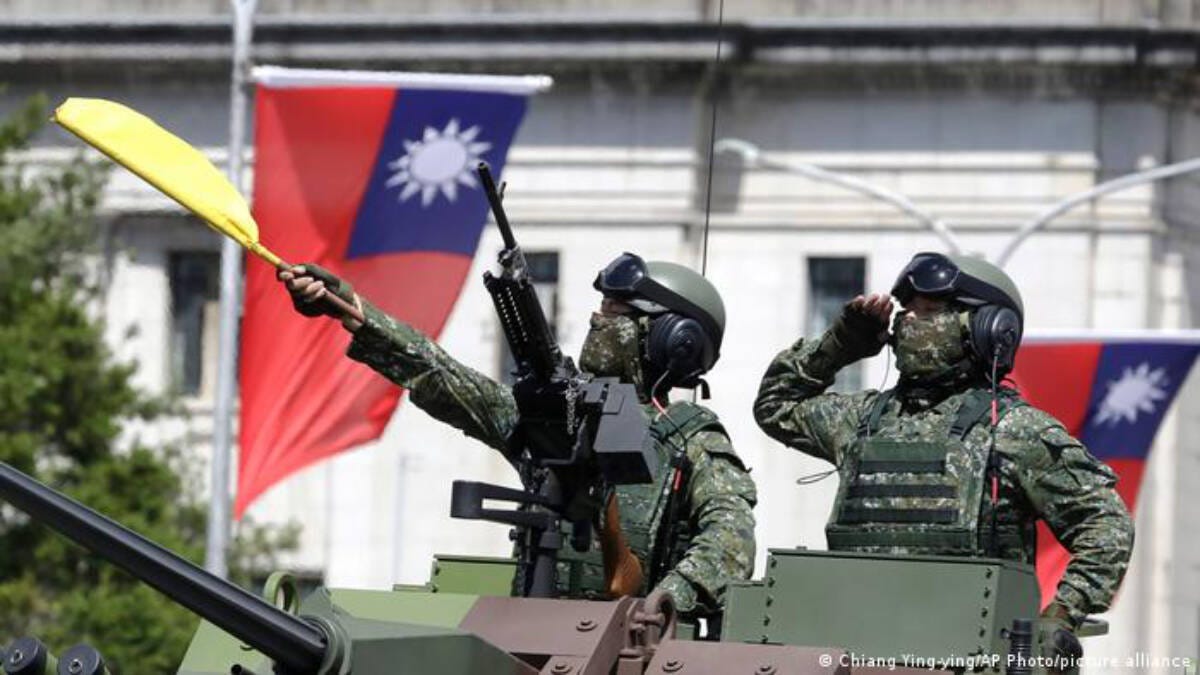
Hello and welcome to the third episode of the What China Wants podcast.
Beijing has long said it will reunite with Taiwan, apparently whether or not the Taiwanese want to do so. But do Russia’s difficulties in Ukraine change China’s calculations and make such an adventure less likely? Sam and Stewart talk the economic, political, and military calculations involved.
You can also listen to the podcast on Apple, Amazon, or Spotify.
As always please do share, comment, and subscribe. We’ll be back next week discussing how Southeast Asia is faring squeezed between Chinese and American ambitions.
Many thanks for listening.
***
Here is the transcript of today’s podcast:
Sam Olsen: "No one should underestimate the Chinese People's staunch determination, firm will, and strong ability to defend national sovereignty and territorial integrity. The historical task of the complete reunification of the Motherland must be fulfilled, and will definitely be fulfilled." So said Xi Jinping, the President of China, in 2021, before Russia decided to invade Ukraine.
Welcome to episode three of What China Wants. Today we're going to be talking about whether the Russian invasion has made it more, less, or about the same likelihood, that China will invade Taiwan to seek what it claims is its national policy of reunification, and to do so I'm here with Stewart Patterson, as always, hello, Stewart.
Stewart Paterson: Hi, Sam, and welcome to our listeners. Why don't we kick off Sam by just going straight to the core of of the matter? What do you think? Do you think that the Russian invasion of Ukraine makes an invasion of Taiwan more likely, or more imminent, or neither?
SO: It's a good question, because many people in the West seem to think that watching Russia's travails in Ukraine has made it less likely that China would do such a thing with Taiwan. After all, it is 100 miles across the sea, it would be one of the biggest amphibious invasions ever, and it's difficult to get that many men across that large a stretch of water. And if you see the Taiwanese defend in the same way the Ukrainians have, then of course, from a purely military point of view, it would make things less likely; and certainly, that's the message a lot of people in the West have been saying in the last few months.
But that is a problem, because I think people are looking at it through Western eyes. When we look at what China is saying about its stance on Taiwan, which we look at every week, we have seen no change whatsoever in the desire to reunify, in whatever way is deemed necessary, with Taiwan in order to achieve the great China Dream. And so I don't think it's made much difference at all in the overall strategic vision of things.
What has changed, I think, is the way that China will do so because, rather than learning the lesson that it's a good or a bad thing - to invade or to forcefully unify if needed with Taiwan - what they're doing is they're looking at the American and the Western response, and the military response by Ukraine, and trying to work out how to best do it rather than whether to do it at all. What do you think?
SP: So I suppose the obvious point I'd just make there, Sam, is you mentioned the Ukrainian valiant defence, is there any evidence to suggest that Taiwan would (a) have the same spirit in defence and (b), have the military capability and hardware to pull it off?
SO: In terms of hardware, if you're looking from the outside, you'd think that the 1950s tanks, the 1960s and 70s planes that make up the backbone of the of the Taiwanese Armed Forces aren't necessarily up to the job. But recently, America has been selling more and more special munitions, the type of which have been very effective in Ukraine against the Russians. So there is that, plus the fact that Taiwan has got a really good high tech sector, which can develop and has developed missiles and other things like drones, etc, which can be used to great effect against any Chinese invaders. But, in reality, you've got the PLA, the People's Liberation Army which is a huge military machine that in theory could go over and wipe out the defenders quite easily.
Whether they could in reality, as we spoke about last week, well they haven't had a war since 1979 - so they're completely untested. But I think that in terms of morale for the Taiwanese, what is important to note is that the majority, the vast majority of Taiwanese do not want to be reunified. The latest polling in December last year revealed that just 11% or 12%, something like that, wants to be unified at all, and only 1% now. And over 70% of respondees said that they are prepared to fight to keep the status quo. So it's a good question Stewart, but I think generally the Taiwanese would put up a fight, even though they are outgunned by the PLA.
SP: And Sam, in terms of the Western response to the Russian invasion of Ukraine, how do you think Beijing is interpreting that? Because the narrative that we read in the Western media is largely about how unified we've been and how the Russian invasion has solidified opinion. And yet, you could draw different conclusions, couldn't you if you wanted to? Because you could say, well, actually the two things that the West - using a loose terminology - could actually have done, which would have made a very big difference were firstly, to actually intervene themselves militarily, and secondly, to cut off Russian gas. And actually we've done neither, we've done everything short of the two things that would perhaps really have swung it in Ukraine's favour.
SO: So you're completely right. The West seems to have convinced itself that it has done everything it can against Russia, whereas actually, we all know, there's an awful lot more they could do, for example, cutting off all oil and gas straightaway.
The other thing is that America has made it quite clear that it's not going to intervene against a nuclear armed state, in a direct military confrontation. And I think that's an incredibly important lesson that China is learning, which is that they can really do what they want, because America, if Russia and Ukraine is anything to go by, is going to be limited on its sanctions, and is not going to intervene militarily directly. It will provide arms and munitions, etc, but getting those to Ukraine is much easier than getting them to Taiwan.
After all, Ukraine has different NATO countries on his border, you just need to ship stuff across by road or train, whatever. But Taiwan is isolated by lots of sea and trying to resupply them whether it's military resupply or food or medicine whatever, is incredibly difficult.
So I think that if you're looking at the lesson that China is learning about the West, everything you said is true. There is not as much pushback as there could have been; the West is united, of course, in that they have done something, but it's not to the ends of the earth, and also they're not going to intervene directly.

But the other thing, which is really important to know is that the rest of the world's viewpoints about this is quite different to that of the Western alliance, in the sense that many countries, India being a prime example, have refused to toe the Western line, and actually, have said, "You know what, it's none of our business really", or worse, have said that they will support Russia because they need Russian oil and gas or because they don't want to be seen as helping the West who they don't typically like. And China is intent on building its defences with those countries.
I'm talking about this from a political point of view, but what about you Stewart? Do you think that from an economic point of view, China's (a) learning lessons from the Ukrainian war and (b) using that to better prepare its defences against any action that the West might take economically against them?
SP: Yes, I would, I would say both. So the first point I would make, obviously, is that sanctioning China in the same way that the West has sanctioned Russia would carry a much, much higher cost economically, for the West than the Russian sanctions have. So, to put it in perspective, China's economy is literally 10 times larger than Russia's. About 15% of global exports come from China, and a not dissimilar percentage of global exports go to China. So, not short of 30% of global trade is either into or out of China. And obviously, that's a very different scenario from the situation in Russia.
The other point I suppose I'd make is that foreign multinationals have much more at stake in China than they do in Russia. The stock of FDI in China runs into trillions. And we have this situation where about 40% of China's exports actually are made by foreign invested companies in China. So, the whole degree to which the Chinese economy is enmeshed in the global economy, is very, very different. So, one conclusion that the Chinese might draw is that if Western Europe in particular was loathed to embargo Russian hydrocarbons straightaway, for fear that it might have inflicted a 2 or 3% hit to Western European economies, they might take some solace from the fact that a similar approach to China would have an impact that I would imagine would easily double that.
And of course, China has a monopolistic grip on quite a lot of important production. Okay, so China's manufacturing value-added, its global share, is now just over 30%. In particular, China absolutely dominates the personal computer market. It dominates the sort of photovoltaic production line, so anything to do really with solar power. It has a pretty entrenched monopoly on rare earths, refined rare earth minerals, and clearly these are critical industries, partly for our hopes to transition away from fossil fuels to more sustainable energy sources, but also just for the continuance of everyday life.
SO: So Stewart, on that, people might say that they're not that critical. I mean, we can do without PV in the sense of you could rely on wind farms or turn the gas or the coal back, and personal computers - how many do we need? You know, that would be the argument against that. What about critical supplies? I mean, is there anything that China is central to which would lead to Western economies grinding to a halt in the same way that Germany feels that if it cuts off the gas and the oil, its economy will grind to a halt with Russia?
SP: Well, I slightly disagree with you on the computer side, I think computers are pretty critical. I mean, we wouldn't be doing this podcast without them. And they do need replacing, right? So if you think about the embedded stock of PCs around the world, outside China, and you assume that 20% of them need replacing each year, for a five year, sort of useful life, productivity would very quickly drop off if they weren't being replaced. Likewise, telecommunication technology, so phones, for example, although a lot of these are now made in Vietnam, a lot of the component parts come out of China, and therefore, some of the supply chain diversification that's taken place, or the end product diversification, I should say, does not actually exclude China from the supply chain. And clearly, you know, mobile phones without the components aren't going to work. So actually, the degree to which China is critical to modern manufacturing should not be underestimated. And so there would be a very heavy cost, particularly if a conflict in Taiwan or the sanctions were to remain in place.
I think that part of the gamble that the Chinese would be taking, would be that their own society, whether through patriotism, or through coercion, was much more resilient to the disruptions to everyday life that would occur, than Western society would be. I mean, do you remember when COVID struck and you know, there was a chance that Father Christmas wouldn't be able to pay his annual visit? Because we were going to be running out of toys. I mean, that merited front page news; there is very little tolerance and resilience, I would argue in Western societies for even moderate levels of disruption. Whereas clearly in an authoritarian state, I would say that resilience runs deeper.
SO: Well on the surface, yes, until you break it, and then at that point, it gets a bit tasty.
SP: Well, that's right. And of course a Chinese invasion of Taiwan would be a make-or-break event for the regime, because if it failed, one would imagine that the regime would fall, and particularly if it failed, with severe loss of life and with economic disruption.
We must remember that China's economy is very fragile at the moment, and China is very dependent on the rest of the world for demand. Exports make up 20% of GDP, it's much lower than it used to be. But equally, it's quite possible that the GDP is overstated, as well. And China, certainly, although it would be very inconvenient and damaging to the rest of the world to be cut off from China, China without export markets and China without an ability to import freely from the rest of the world... I mean, obviously, there would be regimes around the world that would align with China. But, if the US Navy, in particular, were to be put to work to actually blockade China, economic life would become pretty intolerable there very fast as well.

SO: You make good points there. One of the things that we've noticed in the wake of the invasion, is that basically Russia has become almost like a semi-client state to China in many ways - in terms of its economic dependencies, and the fact that China is kind of looking after it, putting it under his wing in a role reversal from how it used to be 50, 60 years ago, before the Sino-Soviet split in the early 60s.
But here's a point from a political point of view. You can see why the lesson that China is learning about this debacle is that it has managed to take advantage to coerce in essence, Russia. But is there anyone that could do the same to China, is there anyone that's got theoretical dependency that could be switched on if China found itself isolated from the West? Or is China just too big to be put in the corner by anyone?
SP: Well, I think it's a question of willingness, isn't it? Because China is very dependent on hydrocarbon imports, and Russia does not really have the ability to meet that demand in its entirety or anything close to its entirety. So for example, in 2020, which is before the invasion of China's sort of $400 billion of mineral fuel imports, only about $53 billion came from Russia. The Saudis are big exporters to China as well, Angola is a relatively big exporter too, and the amount of the hydrocarbons that are arriving overland, and therefore, not necessarily subject to US naval power, is relatively small.
So if a Western-led pushback against a Chinese forced reunification of Taiwan, or an invasion of Taiwan, was to result in a broad coalition, stretching into the sort of non-aligned movement, then China might have bitten off more than it could chew. But given the muted reaction in some quarters to the Russian invasion of Ukraine, we can't take it for granted that everyone's going to fall into line behind a sort of Western push-back.
SO: What's interesting is that, from a political and even military point of view, is that China has spent a lot of time in recent years trying to build out a global alliance. It's coming from behind, obviously, with Western soft power and alliances everywhere. But it's launched the Belt and Road, which has gone down very well with certain countries. It's launched recently, the Global Development Initiative, and it's now launched the Global Security Initiative. And, these are all designed basically to reach out to countries and say, "Look, we'll be your friend, but you just look after us at the same time, by allowing us to export our goods there or allow our companies to work there, etc. Surely, this is a political part of the economic defences that they're building out, but what else are they doing economically? I know that you and I have spoken about the internationalisation of the RMB, etc. But how's that going? How's de-dollarization going? How long is it until China is basically able to economically ride the storm of its own making?
SP: So I think that's a very good point, Sam. I mean, clearly, China's been developing its own international financial settlements and payments infrastructure for a while now. And the central bank digital currency is another prong in its defences there.
But one of the interesting things, I think, is that the central bank digital currency; one of the ways in which this was going to be internationalised was through tourism and Chinese overseas visitors. In a way, it was Chinese overseas tourists that led initially to sort of quasi private sector payment systems out of China like Alipay, WeChat, pay, etc, going abroad and gaining significant market share, particularly in Southeast Asia, but in other destinations too. But obviously, with zero COVID tolerance, the number of Chinese leaving the mainland and going overseas has plummeted. I mean, we're down 85% or so in terms of visitor numbers. So that is going to slow down the rollout overseas of the central bank digital currency in a retail sense, at least.
There isn't a lot of evidence that actually the de-dollarization is going at a pace that necessarily suits the timetable that I think Xi Jinping thinks he's operating under with regard to Taiwan - so I think there's mixed bags there. But we do have an audit going on in China of its economic dependencies. And what's quite clear from a lot of the work that we've been doing, is that the trade patterns of China have been evolving in a way that makes their trading relationship very asymmetric. So they are attempting to trade much more with smaller countries, and in doing so creating a dependency and cultivating influence over the politics and the economics in those countries. And to some extent, I think that probably manifests itself in political alliances. I mean, I don't know, would you agree, Sam, that we're seeing voting behaviour in the United Nations and other measures of political compliance with China on the rise?

SO: Yes, definitely, we are seeing a lot more political alliance-making with China abroad. I mean, the Solomon Islands thing a few weeks ago is an obvious case. But it's not just there, it's in lots of the developing world. And it is a part of Maoist theory, which was descended from what they were doing with the Revolution and the Civil War in the 40s, which went against Stalin's advice to start the revolution in cities and go out to the countryside. The Chinese under Mao went for the countryside and then captured the cities. And this is something that I've spoken to people in Chinese foreign policy about before, which is that you go off to the developing world, and you secure China's relationship there, and you basically cut off the developed world from that. And we've seen that with, for example, Barbados, shifting away from the UK and becoming a republic. It's a small country, but if you do that with lots and lots of small countries, you suddenly find that China's got a lot more reach than it might have been thought otherwise.
From a political point of view, the Global Security Initiative, the BRI, and everything, these are all part of the same message, which is that "we're reaching out to you, and we'll give you investment. But in return, you support us." And you can see it very nicely tying into their preparations for whatever happens after the forced reunification, if indeed it does happen, which we think obviously is very likely.
SP: So in terms of a timetable, then Sam, no one likes to predict something that can be proved wrong imminently. But, it strikes me that China has a window of opportunity with Taiwan. I would argue that 10 years ago, the attitude of the CCP was very much that time was on their side, that given time, and given China's growth trajectory, the Taiwanese would eventually just fall into line, because it would be in their interest to do so because China would become such a powerful economy and such a powerful global player. And obviously, if the political reforms had continued, then unification with China might have become quite an attractive option. But perhaps now, given that China's economic growth model seems to be severely challenged, given that the demographics seem to be severely challenged, and given that a lot of the Western world at least, seems to have embarked on a policy of deliberately trying to immunise itself from dependency on China, but is at the very beginning of that process, and therefore has not been successful yet in doing so. Does this not all point towards a more imminent attempt to take Taiwan?
SO: We know that just before the invasion, one of Xi Jinping's foreign policy advisors was on record as saying that the planning for forced reunification with Taiwan would happen after this autumn's Party Congress where Xi Jinping is expected to be made president for life, but before 2027, so we're looking at sort of five years there. But, assuming maybe the Russian debacle will have put military planning back by a year or two, you know, by 2028 or 2029, something like that. And I think this is very important, the timeframe I mean, in terms of the lesson learned by China from the Russia Ukrainian war, in that there is a limited time. Because the West is powerful, is very powerful, and it has been able to rearm Ukraine and been able to give them succour. And it might be more difficult to do so for Taiwan, but Taiwan is also learning lessons from this, and the Zalenskyy-isation, you could call it, of Taiwanese politics ahead of the 2024 presidential election where you're very likely to see much more sort of talk about standing up to your neighbour, and perhaps people even pushing further down the independence route.
Moving forward into what China is learning around this is that there is a simple equation, which is that China needs to get its economic and political ducks in a row to properly defend itself from the West, versus Taiwan rearming with American and Western support to make any forced reunification a very very difficult prospect indeed. And so, are we looking at that as being a five-year balancing act, or a 10 year balancing act, probably sooner rather than later considering the amount of support that Ukraine has received.
I think that that at the end of the day this is the equation that's going through Beijing's mind. And I think that is the key lesson that's been learned, which is, as you said, there is not an infinite amount of time to make Taiwanese reunification happen. And the second point is that Taiwan can be and most likely will be supported, so therefore, there needs to be some pre-emption, in making sure that that support is pushed down or pushed away, and that China's chances of taking Taiwan enhanced rather than depressed by what's happening with Russia and Ukraine.
SP: Sam, I suppose one of the key areas in this contest is actually Southeast Asia, because if Southeast Asia spoke with one voice firmly on one side or the other, then that could act as a big deterrent to China, trying to exercise an aggressive takeover of Taiwan, I would think, and maybe what we should do in next week's podcast is look at the relative influence that China has brought to bear in Southeast Asia, relative to the Western powers and indeed, other Asian powers.
SO: Yes, good idea. We'll return next week with a discussion about Southeast Asia. Thanks very much Stewart.
SP: Thank you, Sam.
SO: Goodbye!






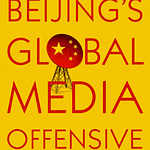
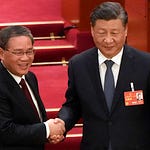
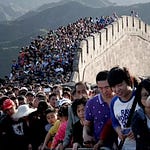
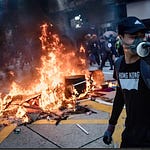


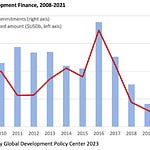
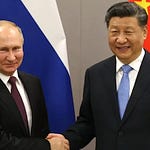
How Might the War in Ukraine Affect China's Ambitions for Taiwan?